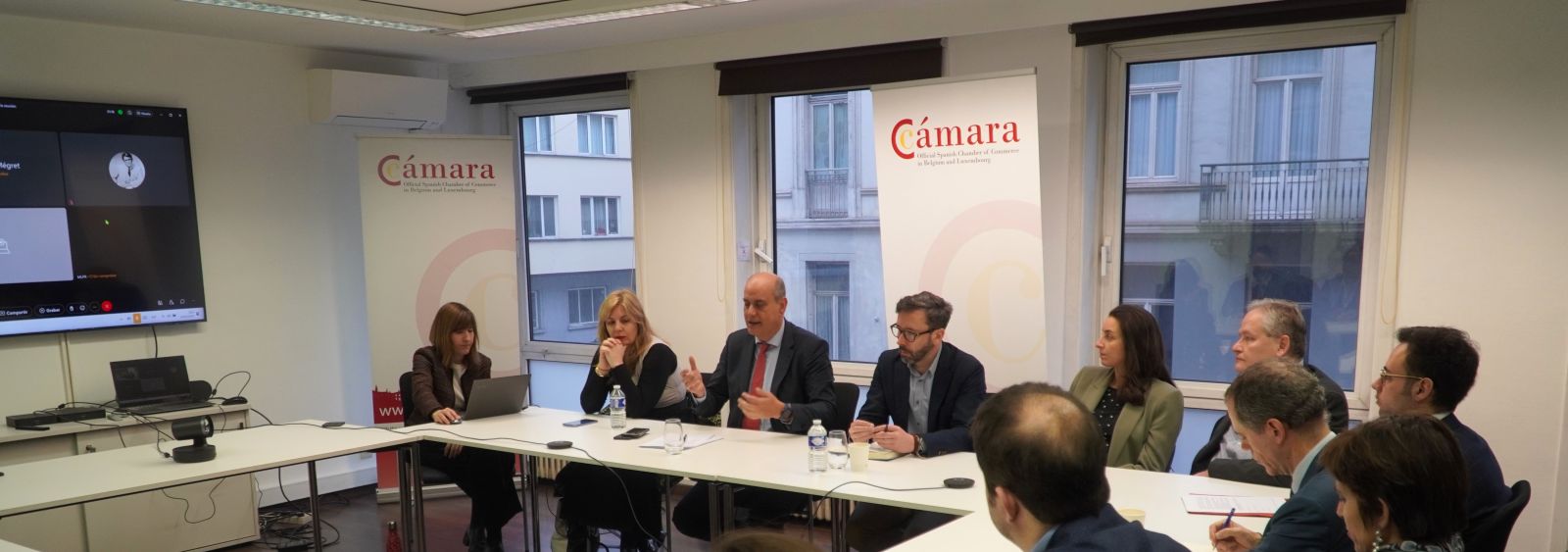Fernando Castillo de la Torre reviews recent and future competition developments in European Commission policy
On Wednesday, February 14th, the Official Spanish Chamber of Commerce in Belgium and Luxembourg held a breakfast-debate with Fernando Castillo de la Torre, director of the Legal Service of the European Commission. The event took place in the framework of the “Competition Spain” working committee and dealt with recent and future developments in different areas of competition, with special emphasis on mergers and the Digital Markets Act.
The event began with a brief speech by the chairman of the working committee, Miguel Troncoso, who introduced the speaker and summarized his experience in the Legal Service.
The speaker then explained the reforms that are on the table in competition matters and how they will be affected by the partial renewal of the Court of Justice of the European Union in October. These include a reform of particular importance concerning sustainability, within which specific measures and more detailed guidelines are proposed that take into account the particularities of agricultural laws.
Next, Castillo de la Torre discussed the functioning of the Commission’s investigations in competition matters. Among other issues, he raised the importance of company complaints as a mechanism to initiate these investigations, alluding to the existing debate on the extent to which civil liability dissuades companies from going to the Commission if they are not certain of a request for immunity.
Regarding the Digital Markets Act, the speaker reviewed the open proceedings concerning Meta, Google, ByteDance (TikTok), Apple, and other major competitors in the market. He also mentioned smart legislation as a tool he envisions for the future. The digital world is one of the Commission’s priorities.
The presentation was followed by a question and answer session in which attendees raised a variety of issues. These included the Commission’s strict standard when it comes to accepting mergers and whether it should be more flexible and reduce the burdens it imposes on companies to favor competitiveness.





